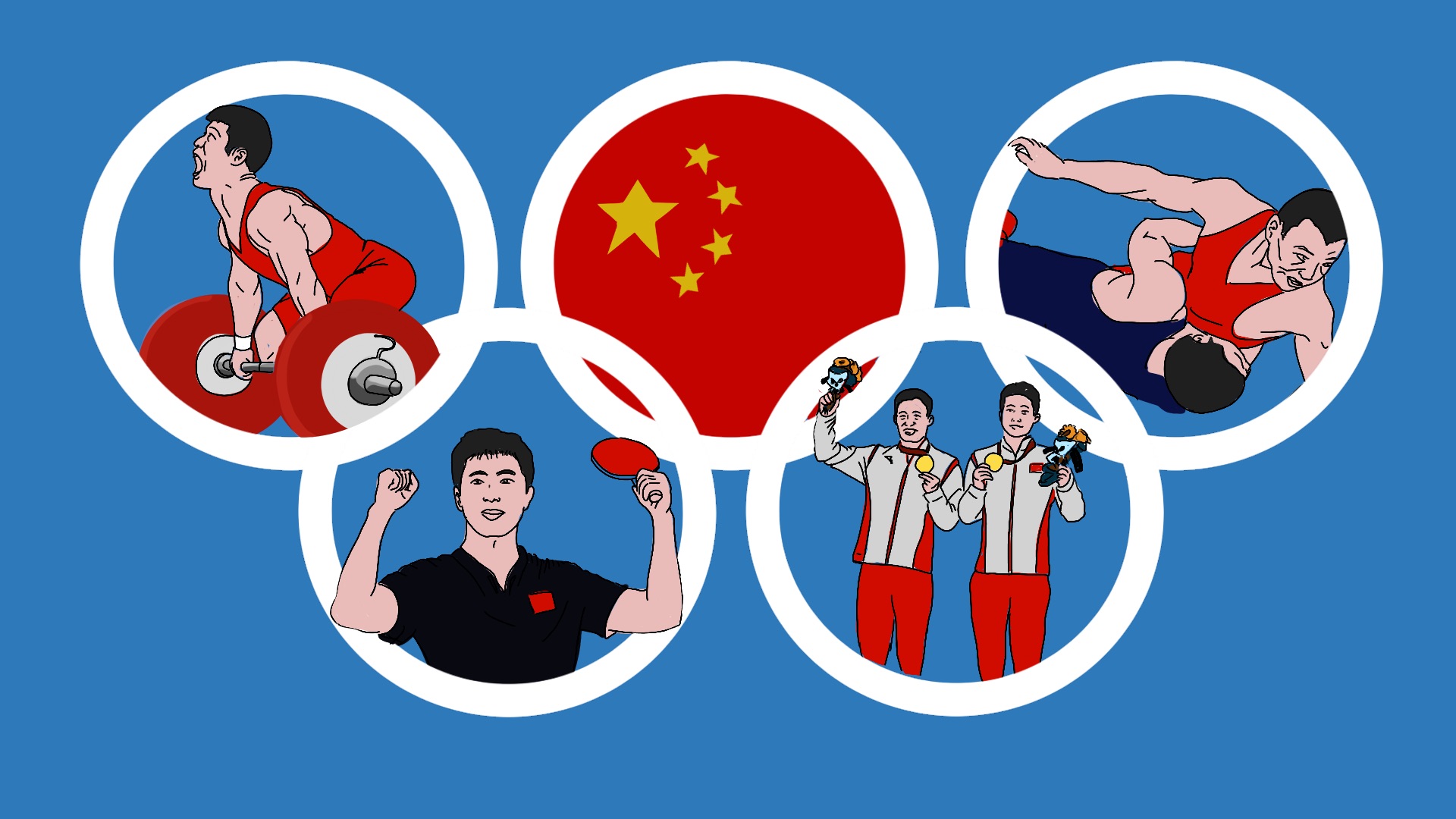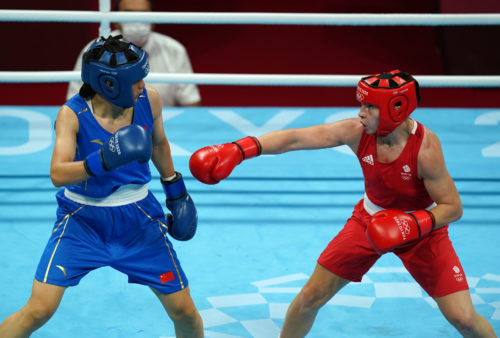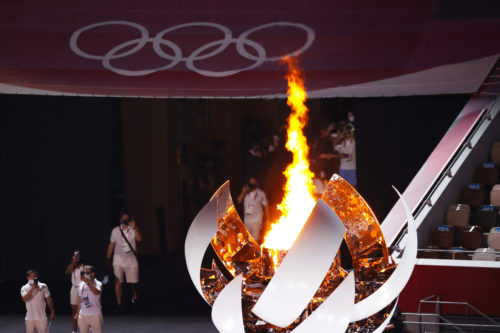U.S. edges out China in Olympic gold medals
China brought home 38 gold medals from the Tokyo Olympics, while the U.S. pulled ahead at the last minute with 39. Here’s a review of the intense final day of competition, and a preview of the next Summer Olympics in Paris in 2024.

Team USA won three gold medals on the final day of the Tokyo Olympics to take the top spot from China in the gold medals table. It was a gripping last day of action as one of the closest Olympic Games concluded in a dramatic fashion.
Qín Gāng 秦刚, the new Chinese Ambassador to the U.S., posted a gracious message on Twitter, congratulating the Americans on ranking “first on the medal tally.”
Entering the final day of the Games, China, with 38 gold medals, had an advantage of two over the U.S.
First up, the women’s basketball gold medal match. A sure thing for the U.S. team, which defeated host Japan 90-75 in its 55th consecutive Olympic victory, securing a seventh consecutive gold.
A few hours later, the U.S. pulled level with China on gold medals.
In the velodrome, American Jennifer Valente was crowned omnium champion, after the reigning champion from Great Britain, Laura Kenny, faltered in the multi-format track cycling race.
The win, which brought the U.S. up to 38 golds tied with China, gave the Americans the overall top spot by virtue of significant leads in both silver and bronze medals.
China’s last chance to lead in gold

However, up next was the women’s middleweight boxing final and China’s Lǐ Qiàn 李倩. A win for Li would push China back to the top.
Going into the bout, Li had yet to lose a round of boxing at Tokyo after defeating fighters from Ireland, India, and Russia 5-0.
Unfortunately for Li, she came up against Lauren Price from the U.K. Training out of the same gym as world heavyweight champion Anthony Joshua, the Brit had to come from behind in her semifinal to make the final.
From the opening bell, Price dominated the bout. Sitting behind a comfortable jab, Li was thoroughly outmatched, with Price winning every round, on every scorecard.
While it was tough to take for Li, an improvement on her Rio bronze and solid performances all Games until the final medal match will be a source of pride for the Hohhot native.
With that, China’s chances of finishing first were over.
The volleyball decider
Still tied with the U.S. on golds, all that remained was the women’s volleyball final.
Pre-Games, China had been the favorite to defend the title it won in Rio five years ago. However, after a disastrous group stage, the world’s number one team had been sent home early. Lining up on the court in the final was instead the U.S. and Brazil.
Brazil, which had dropped just four sets all tournament, was immediately put on the back foot by the U.S. Racing to an early lead, the Americans never surrendered it, sweeping Brazil 3-0 to earn America’s first-ever gold in the women’s game.
Although it was a tough final day for Team China, there will be a lot of fond memories of these Olympics. After two years of COVID had caused China’s near-total isolation from the world of sports, these were the most uncertain of Games for the country.
However, boasting its largest-ever overseas contingent, China came the closest to knocking the USA off its top spot since Beijing 2008, when China stormed to the top of the medals table.
The positive energy from the Chinese athletes in Tokyo is sure to help build momentum inside the country leading up to the Winter Olympics in Beijing in February.

Can China replicate the Tokyo success in Paris?
Attention will now turn to the next Summer Olympics, which will take place in Paris in three years, and there’s no reason why China cannot challenge the U.S. once again.
In China’s traditional big six sports, the country saw a return to form after a poor Rio showing. While not able to achieve the usual clean sweep of diving and table tennis, it’s unlikely that China’s dominance in those sports will be under significant threat in 2024.
In shooting and badminton, China was also able to top the table with some great performances. The emergence of young talents Yáng Qiàn 杨倩 in shooting and Chén Yǔfēi 陈雨菲 in badminton will give China hope of continued success in those sports, despite an increasingly competitive field.
Gymnastics remains a slight question mark for China. Despite scoring a few unexpected golds in artistic gymnastics after the withdrawal of Simone Biles left the field wide open, the downward trend is clear.
Increased competition in gymnastics from around the world in the sport has meant that the gymnastics competition could become the most open in Paris, with athletes from non-traditional gymnastics nations competing for medals.
However, the greatest area of uncertainty for China’s gold medal count is in weightlifting.
In the sport, China remains utterly supreme. In Tokyo, China won gold in seven of the eight divisions it competed in. But with talk of the sport being cut from Paris following scandals and doping accusations, China could see a valuable source of medals eliminated entirely from the picture.
Although the absence of weightlifting would hurt China on the overall medals table, China’s achievements in sports such as rowing and sailing in Tokyo can be built upon.
Rowing, especially, is one sport that China will see potential in. Managed by one of the world’s greatest rowers, Sir Steve Redgrave, Team China has seen rapid progress under his stewardship.
The sport, which is relatively niche, awards the same number of medals as weightlifting and could give China the opportunity to assemble a few gold-medal-challenging crews in a short amount of time. For example, China’s solitary gold medal in the sport came from the women’s quad sculls. That team was built and turned into an undefeated force within the space of a few years.
Clearly, three years is a long time in sports and a lot can change between now and Paris 2024. But with young stars arriving on the scene — including the 14-year-old 10m platform champion Quán Hóngchán 全红婵 — and with more to follow, China’s future Olympic prospects look very bright.
The China Sports Column runs every week on The China Project.





